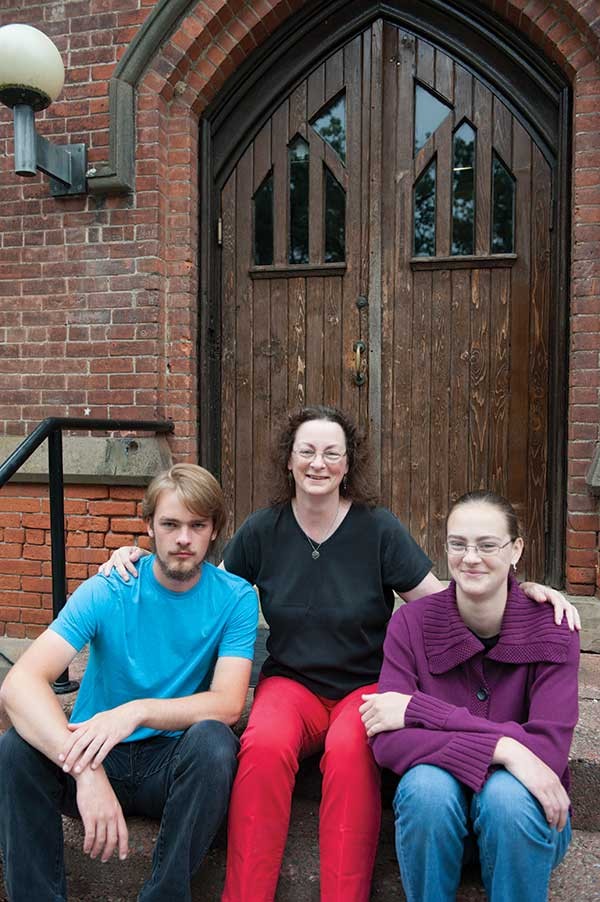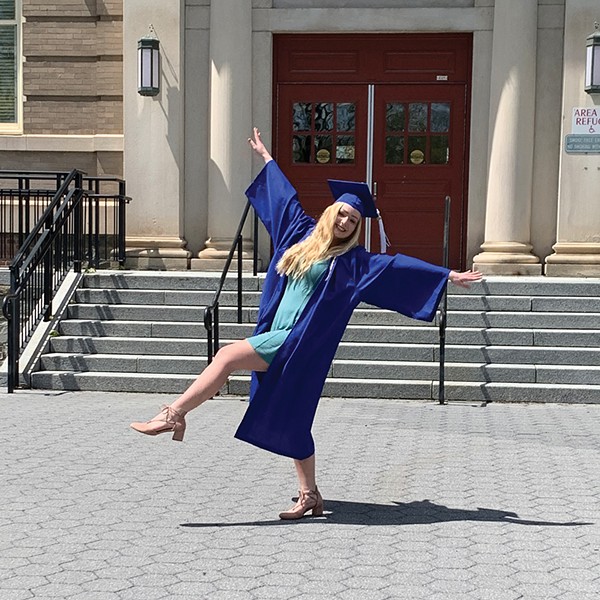There comes a moment in every homeschooling parent's life when they wonder, "Can I really keep this up?" There are definitely downsides to homeschooling, and I have encountered many in the course of homeschooling my daughter from kindergarten through fourth grade. But I never blinked because the rewards far outweighed the challenges.
My great moment of doubt is about college. Of course, I know that homeschoolers go to college, and not always as a 12-year-old prodigy. But I recently heard that local homeschoolers were having trouble translating their educations for admissions committees. And I wondered: If the rigorous homeschooling of the talented kids I know isn't acceptable to colleges, could homeschooling be a viable alternative for education at all? I decided I needed to research just what the problem was before going any further.
Luckily, a friend was hosting a college admission information session at her house. She posted the invite to the homeschool community on a Yahoo group list, saying she'd like "to share what I've learned and what I wish I had done differently." It was this last piece that especially compelled me.
Options for High Schooling at Home
Beatrice Alford has a deep gaze. She's been involved in forging co-ops, hiring tutors, and enriching her own learning life with French conversation groups and online classes. And she's homeschooled her two daughters, Marley, 17, and Eleanor, 12, since the beginning. As someone I admire, I am eager to hear her experience with college applications.
Starting with a single math workbook, Marley's education at home went from field trips and unstructured reading time, to online classes through Home2Teach.com and WriteGuide.com, to summer camps in writing at UMass Amherst and physics at Brown. This mix of learning at home and beyond is not uncommon for homeschoolers. Locally, there are part-time school options like Sojourner Truth Schoolhouse in New Paltz, parent-led cooperatives like The Alternative Learning Center in Columbia County, and private class series offered by certified teachers who are often on sabbatical (while teaching their own children). Alford and Marley added subjects, one by one, as interests and opportunities arose. But it was Bard's Bridge Program, where Marley took 100- and 200-level classes in theater, biology and math, which proved pivotal to her college applications.
The Bridge Program is Bard's enrichment for juniors and seniors within commuting distance—50 miles—who are thirsty for challenge. Bard solicits guidance counselors, who encourage strong candidates to apply. Recently, homeschoolers have heard of it through word-of-mouth. Once accepted, students are invited to enroll in classes for a reduced fee if there's room. They can access the library, campus center, and lectures, but not student clubs, the gym, or campus parties. It's not meant to substitute for high school. Bard has another program for that at Simon's Rock, where kids ages 16 and up can be with others their age, doing college-level work.

"Bridge students are not treated as high school students in a class. They're treated like every other student," says Joanna Baker, assistant director of admissions, "Which is good. But we need to determine if they're ready, and the interview is really a big part of the application." In fact, right before we spoke, Baker interviewed a homeschooler. "It's not a homeschool program per se," Baker explains, "but high school students often have trouble coordinating their schedule with the Bridge Program, so it does tend to be better for homeschoolers because of their flexibility."
The Bridge Program shows that participants are independent, committed, mature, and able to thrive in a classroom and/or seminar setting. All things colleges are looking for in applicants, especially from homeschoolers, who might not have this kind of credential otherwise.
The tutor Alford hired to instruct Marley in writing college-level research papers was KellyAnne McGuire, a graduated homeschooler who designed the nine-week course on the subject. (Full disclosure, McGuire is a former Chronogram intern.)
McGuire "didn't homeschool in [her] pajamas." She and her brother sat down to lessons at the kitchen table five to six hours a day, five days a week. "It was serious," she says. Her parents pulled her out of public middle school and wanted her homeschooling to be stimulating. McGuire took liberal arts and 101 classes at Ulster County Community College so that when she entered four-year college (Mt. Holyoke), she could spend her time doing specialized classes towards her major. Her mother encouraged certain classes, which helped her determine what she liked, and also kept meticulous records of all the books read, the curriculum used. She wrote it all into the quarterly reports submitted to the local school district.
When it came time for grad school, McGuire only applied to her top choice—and got in. Students often apply to a dozen colleges, but McGuire thinks that's spreading oneself too thin, which can show in an application. And she may be right. Bonnie Marcus, senior associate director of admissions for Bard, says, "In general, the applications are getting more and more homogenous by use of the Common Application." It allows students to apply to a number of colleges with one application form, but with restrictions. For example, there will be a 650-word limit on the essay. For schools like Bard, this is a limit that wouldn't otherwise be applied. "If a student wanted to write a 1,000-word essay, we'd read it," Marcus laughs. But the Common Application will cut them off. Marcus recommends personalizing the application with a cover letter and portfolio, and McGuire suggests focusing on favorite schools. "Just trust that you'll end up where you want to be," McGuire advises. "It should be about finding the best fit."
Getting Organized
Lachlan Brooks could be a poster child for homeschooling-to-college. Bright, personable, and a talented actress, Brooks's homeschool experience began with first grade and ended last spring with a letter of completion from the local school board, which her mom, Cheryl Taylor, requested in writing when submitting the fourth quarterly. The letter simply states, to whom it may concern, that Brooks's education has been overseen by the district and satisfactorily completed. It will serve in lieu of a GED or diploma, and it's the only proof colleges will need. The transcript that Taylor compiled of Brooks's studies at home tells them something else.
In the early years, there were nature-based learning groups like Roots & Shoots and a one-room schoolhouse cooperative. Later, there was a weekly study group where the girls discussed subjects from economics to geography, plus wrote their first college entrance essay, when there was no pressure. They relied on local libraries. Through them, Brooks was able to do the college-level Great Courses. There are also language programs like Mango and lecture series on CD like Modern Scholar.
To track it all, Taylor devised a paperwork method that continued the conversation between her and Brooks. "By high school, I used a weekly planner to track and organize work and log the hours daily spent on each subject," Brooks explains. "We'd print a new one every Monday, and my mother would use these to compile the quarterlies." Taylor slid the stack out of a hard file folder, unwinding the thick thread that held it closed. They were spreadsheets that Taylor designed in Word, which tabled what was assigned and accomplished, including a reading list. The last column was reserved for notes from Taylor to Brooks. One read, "This is a top priority," in red.
Deb Lundgren is a certified teacher in English, Latin, and special education. But she hasn't earned more than $1,100 in the past 18 years combined, she boasts. Instead, she's been homeschooling her children, Noah, 18, and Silvie, 16, creating all the lesson plans and writing her own curriculum.

After taking every music class offered at UCCC, Noah was accepted to the Bridge Program, where he fell in love with college life. Namely, Bard's college life. So when Noah applied to Bard, he and Deb had a highly recommended pre-interview to determine what was needed for his application. "Homeschoolers come to us from differing backgrounds," Marcus says. "So we recommend an interview to help us understand each individual circumstance." During the interview, it was determined that Noah's application would need further documentation beyond a transcript. "Our job is to make a decision," Marcus explains, "that is in the best interests of the college, the faculty, the current students—and for the applicant. We want each student to be successful." Deb went back to her quarterlies and found all the projects, book titles, and topics covered. She went online to fill in gaps with tables of contents. Deb compiled a 42-page document, essentially recreating Noah's four years of high school. And it worked. He'll be entering his sophomore year at Bard this fall.
With Silvie, Deb wishes she were already creating that substantiated transcript, and updating each month. "But it's like choosing not to bring your digital camera to an event," Deb says. She's choosing to live the event of Silvie's education "rather than chronicle it," knowing that she will have a full-time job come admissions week. "Even if you don't want to detail everything in the quarterlies and end of year assessments, a personal log will be very useful," Taylor suggests.
The more I learned, the more I saw that the quarterlies function not only as a tally of achievements but also of what's accepted by the school district. Deb has started to show units at the bottom of Silvie's. So at the end of high school, she'll have a stack of papers with earned credits, stamped as received.
In the course of her education, Brooks has been in 15 theater productions, 11 of those through the Shakespearean youth theater, New Genesis Productions, which is how I met her family. Brooks has performed as Hamlet and the Shrew, and was the assistant for my daughter's summer intensive. Brooks believes that it was this dedication that lent credence to her college applications. "Homeschoolers learn to be self-directed and driven," Brooks says. "Our time is more flexible so we can dig deep into subjects of interest. In a way, it's the prelude to college, where you get to really focus on and commit yourself to your passion."
This fall, Brooks will be starting at NYU's Tisch School of the Arts, where she'll study acting as well as playwriting and directing through their Playwrights Horizons Studio. "I guess I went with the most academic BFA option I could!" she says. She hopes that the choice will prove to be a good fit for her. "The work that I want to do doesn't require any kind of technical degree so, really, I'm getting this education because I want to improve myself, intellectually, before going out into the world."
Standardized Achievement Terror
For all her accomplishments, Brooks notes one place for improvement. "As my homeschooling experience wasn't test based, I felt at a disadvantage compared to others who had a lot of practice," she says. In fact, if she could do it all again, she would have started preparing for college sooner, taking the PSAT at the earliest possible date and choosing two topics for the new SAT subject tests sooner so she could have ample study time.
This is where she and McGuire differ. McGuire wouldn't have taken the SATs at all. "Many colleges don't require them because the scores don't say anything about students," she says. When she started applying to schools, she learned that she didn't need the scores to get into her top choices. "I could have saved myself the stress." Research into each school's individual policy is necessary, though, because the reality is that some schools that don't require scores do mandate that homeschoolers submit them. The thinking is that for students who have few standardizations and evaluations primarily from their mothers, the SATs provide a measure for comparison that can help colleges predict the potential success of applicants. It's a debate that continues.
At What Cost?
During the info session, Alford confided that college costs were a major concern. She's an ex-pat from France and, there, higher education is just the next step—and it's affordable. But she describes her experience at French university as uninspiring. A demanding application process could filter out the slackers, leaving only the curious and driven. But there's still the question of how to pay for it. "If your kids decide that they want to go to college, I would say that money is the key factor in the education equation," Alford says. Marley agrees with her mom. "There seems to be a myth that once a college accepts you, they will provide whatever financial help you need in order to attend," she says. "In actuality, it means massive loans."
The New York Times notes that the average student borrower these days leaves college with $27,000 in debt. "Thinking about it early gives you the immense luxury of looking into the zillions of scholarships out there," Alford notes. She sites the Foundation Center, a scholarship and grant organization, and Gale Cengage Learning, which archives learning resources and makes them accessible through libraries. On Marley's handout, there are two sites, if you simply enjoy applying for scholarships: Zinch.com and ScholarshipPoints.com, with essay challenges and surveys. "Now applying is like a sport for her," Alford says. But she advises looking to scholarships that substantially reduce tuition rather than spending time applying for many small ones.
This is where Marley's experience with Bard's Bridge Program was especially successful. It was during the Bridge Program that Marley discovered she had a passion for math, and it was the math professor who suggested she apply for a Distinguished Scientist Scholars award. In the fall, Marley will attend Bard on a free ride.
In the end, the trouble simply lay in the paperwork, and perhaps the lesson to be learned is to determine early if you're on the college track. These homeschoolers decided in the 11th grade, and the refrain I heard from all of them was, "I wish I'd thought about it sooner." There was less scrambling for those parents who anticipated college even before there was a decision. Perhaps our task, as parents, is to see the potential and prepare for many paths our kids may uncover. One of the perks of being a homeschooling family is that you get to address everything together, with creativity. And with a healthy dose of organization, it can go a long way.




















